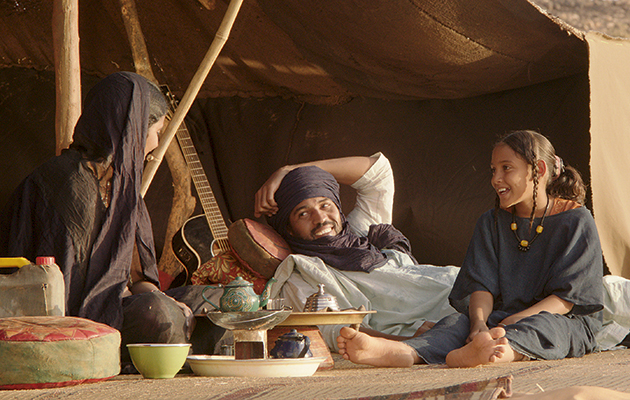In March, 2012, the northern Malian city of Timbuktu was occupied, first by the secular Tuareg separatists, the MNLA, then by an alliance between al-Qaida and their affiliates, Ansar Dine (Defenders of the Faith). During a nine month period, buildings were looted, Sharia law was imposed, music and football were both banned. In July, 2012, the New York Times reported that a couple who were accused of having children outside marriage were buried up to their necks in sand and stoned to death in front of several hundred witnesses.
This incident did not go unnoticed by Abderrahname Sissako, a Mauritanian-born filmmaker who grew up in Mali. Sissako’s latest film describes how the civilian population of Timbuktu, on the southern edge of the Sahara, cope with similar tribulations presented by their newly self-appointed rulers. “Roll up your pants, it’s the new law,” goes one edict. It would be entirely absurd, were punishment for disobeying it so terrible.
Through a series of unconnected vignettes, Sissako evokes many subtly delineated and touching forms of humanity in the face of such extremism. When football is banned, the local boys take to a pitch and kick an imaginary ball to one to each other. A female fishmonger reasonably attests that she cannot wear gloves and sell fish and dares the jihadis to cut off her hands. A woman who has been sentenced to 40 lashes for singing transforms her cries of distress under the lash into a remarkable aria. Although much of the film takes place within Timbuktu itself, the emotional core of Sissako’s film lies in the dunes outside the city’s walls. There, cattle herder Kidane (Ibrahim Ahmed) lives in a tent with his wife Satima (Toulou Kiki) and their 12 year-old daughter Toya (Layla Walet Mohamed). An incident involving one of Kidane’s herd, however, brings him to the attention of the authorities. Sissako’s film offers a fearlessly poetic response to the jihadist occupation; its tone is never preachy and it is beautiful to watch. When the jihadi enter a mosque during prayers, wearing shoes and brandishing Kalashnikovs, the iman asks, “Where is God in all this?”


